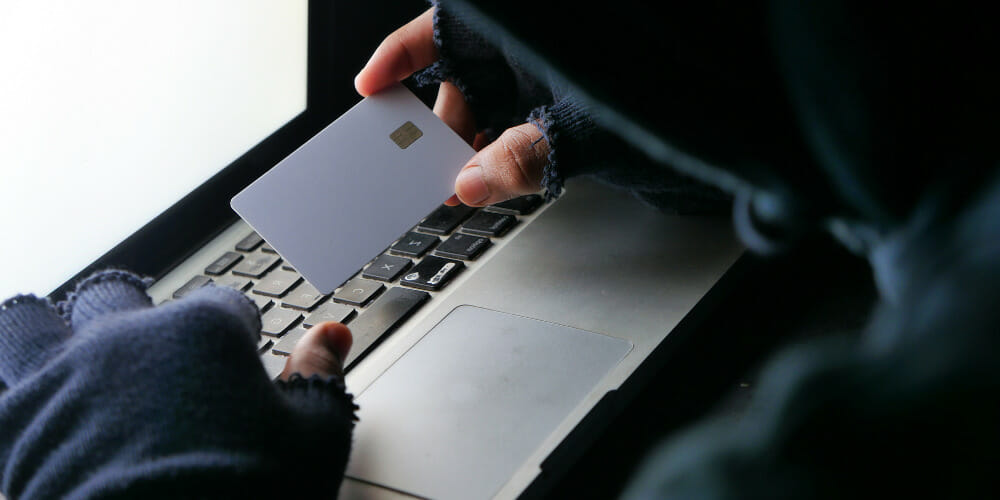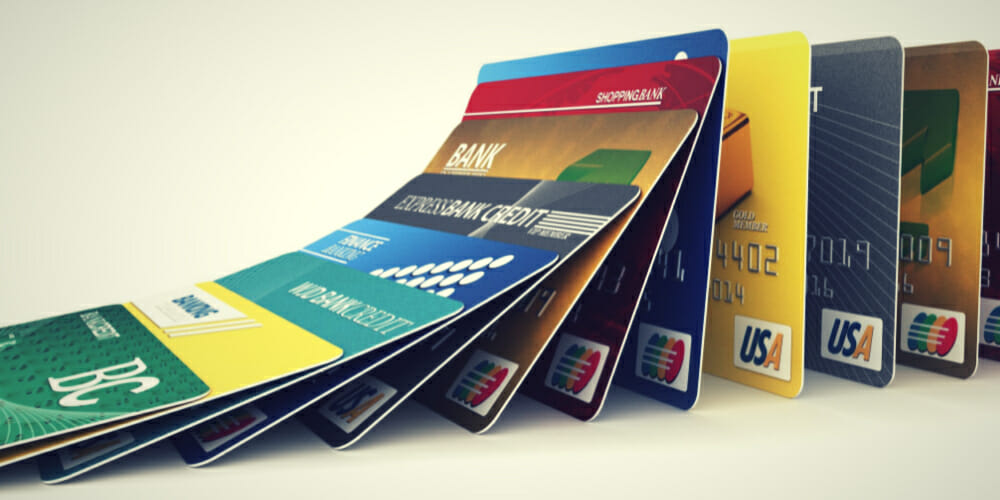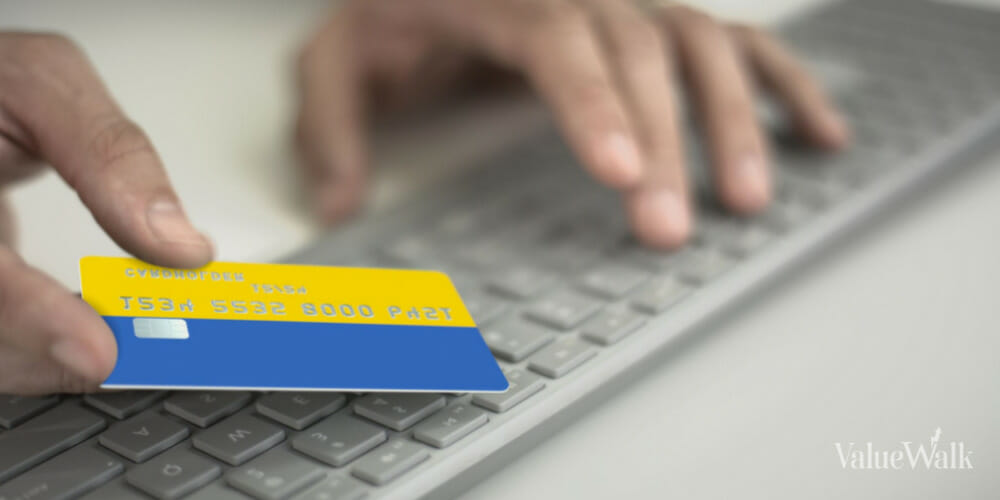While cybercrimes like credit card information breaches have become common, the fear of becoming a victim of it has been stuck in millions of hearts. The hackers have various techniques to get a hold of your credit card number. But can they actually use the stolen credit card number?
The brief answer is “No”. The stolen credit card numbers are sold in bulk on the black market. They are bought and resold various times before someone actually uses them. The hacker might try to use your card number for online purchases or create a fake plastic card with your card number to make as many transactions as possible. However, it has become almost impossible without a CVV code.
In this blog, you’ll explore credit card theft tactics and how to detect and prevent such frauds. So, let’s get started!
What is a Credit Card?
Banks issue Credit Cards to facilitate users in making purchases or withdrawing cash from ATMs. A credit card is more like borrowing money for your purchases, which you have to return later in the form of credit card bills.
However, every bank has some spending limits set on various credit card options. Once the limit is reached, you must wait for next month to use your credit card. Credit cards have various benefits, such as cashback rewards, credit card fraud protection, and much more. The interest rate of your credit card may differ according to your card provider.
Credit Card Information
Credit cards are great financing tools, and you must know the basics of credit card information to use them properly and to prevent any scams or thefts. The credit card information includes a few codes displayed on your card, which you need to provide for any online transactions. Credit card information includes:
Credit Card Number
Credit card number is typically a 15 or 16-digit code embossed on the front side of your credit card. However, the exact place may differ according to your card provider. Mostly it is printed in the middle of the front side of your credit card. Your credit card number is different from your credit card account number. It indicates the bank that has issued the card, the payment network, and the cardholder.
Cardholder Name
Cardholder name is also embossed with magnetic ink on the bottom of the front side of your credit card. Cardholder Name must be the same as the user’s Government issued ID name. Most often, it is the full name of the cardholder.
Expiration Date
Expiration date is the date after which your card will stop working. It is also printed on the front side, typically between the card number and cardholder name.
CVV
CVV is the security code printed on the back of your credit card. It is necessary for online purchases to avoid credit card fraud. It is mostly printed flat under the magnetic strip on the back of your credit card. The CVV can be a 3 or 4-digit code, depending on your card provider.
How Can Someone Steal Your Credit Card Information?
With the increase in credit card information breaches, you might also be curious about how scammers steal your credit card information to prevent such situations. Following are some tactics through which your credit card information is stolen:
Stolen Wallets or Lost Credit Cards
Stealing wallets or physical cards is much easier for scammers, especially while traveling. Your credit card can even be stolen from your mailbox before you use it. Another possible way for scammers to get a hold of your credit card is getting lost credit cards. The greatest benefit thieves have with your stolen or lost credit card is that they can use it right away without worrying about any extra procedures.
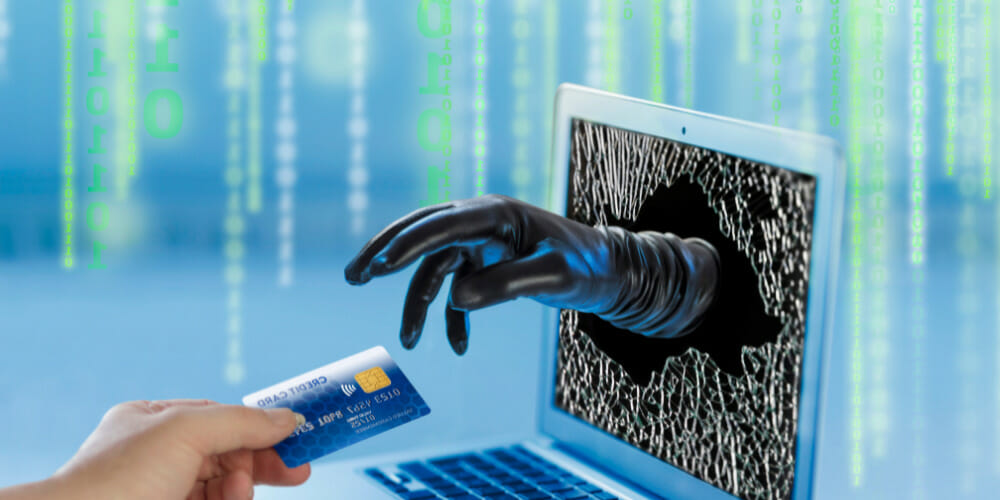
Found in Trash
Another possible way to steal your credit card information is your trash can. If you accidentally throw your pre-approved card or replacement card, or card statement without shredding it to pieces, it is possible for thieves to get your credit card information.
Friendly Fraud
Friendly fraud refers to such situations when the scammer behind the credit card fraud is your family member or much-trusted friend. They might easily access your card or credit card information and use it without your knowledge. Plus, they can also open a credit card line under your name without your consent.
Card Skimmers or Shimmers
Card skimmers are devices that are installed at publicly accessible card readers like self-serve pumps or gas stations. These devices scan your card and store all its information for scammers. Chip or EMV technology has somehow reduced the card skimmers technique. But still, such scams occur in less monitored locations such as local retail stores.
Public Wi-Fi
Public wifi is a go-to option for scammers to breach your device and steal your financial information. Therefore, if you happen to use a public internet service, use VPN to prevent any scammer or hacker from getting into your device’s data.
RFID Collection
RFID, or radio frequency identification, is an advanced technology that scammers use to steal or scrape your credit card information by standing at a certain distance from your card without even having to touch the card. Although such scams are still rare, this technique might spread with the exposure of RFID technology.
Phishing
Phishing is the most outdated or old-fashioned way of stealing your credit card information. In such a scam, the thieves trap innocent cardholders and get their credit card information from them by acting as bank representatives. Thus, you should never share your credit card information with anyone over the call or text.
Malware or Spyware
Malware or spyware are potential threats that may steal your financial information when you access a public network or unauthorized website. The malware or spyware software is automatically installed on your computer or device and executes itself to destroy the data and steal sensitive information for hackers.
Phone Call Scams
A scammer may call you and pose as a bank representative and ask you to provide your bank details or credit card information. Know that your bank will never ask you to provide your bank details, and avoid giving away your information to anyone.
Shoulder Surfing
In the case of shoulder surfing, a restaurant or grocery store employee may copy your credit card information and sell it on the black market or use it to transfer funds. So, be careful of who gets access to your credit card.
Formjacking
Formjacking refers to harmful, malicious software that steals your information when you enter your credentials on a website or online form/survey. Formjacking codes are usually found on unsecured websites.
Account Takeovers
A scammer might get a hold of your bank login credentials or personal information and take over your banking account. He might even use your information for fraudulent loans or for opening new credit lines without your consent.
Data Breaches
Data breach is rapidly increasing day by day. Data breaches expose millions of information in minutes to the dark web. Therefore be careful of where you provide your financial information.
Hacking Online Stores
Online stores have relatively low-security features and can easily be hacked. Hackers may get a hold of customers’ credit card information and use it for online transactions. Thus, be careful of providing your credit card information to any online store.
How to Know if Your Credit Card Info Has Been Stolen?
Detecting and reporting them quickly to avoid any big financial damage is key. Here are possible ways to detect that your credit card information is stolen:
Unusual Charges On Credit Card Statement
One of the most obvious signs that your credit card info may have been stolen is unusual or unexpected charges appearing on your statement. If you see a charge from a merchant you don’t recognize or a charge that’s significantly higher than normal, it could be a sign that your card has been compromised.
Receiving Unexpected Credit Cards In The Mail
If you start receiving credit cards in the mail that you didn’t apply for, it’s a sign that someone may have stolen your personal information and used it to open new accounts.
Getting Calls Or Emails From Debt Collectors
If you start getting calls or emails from debt collectors about debts you don’t recognize, it’s another sign that your personal information has been stolen and used to open new accounts.
Your Credit Score Suddenly Drops
If your credit score suddenly drops for no apparent reason, it could be a sign that your personal information has been compromised. A drop in your credit score can also be a sign of identity theft.
New Accounts or Hard Inquiries on Credit Report
If you see new accounts or hard inquiries on your credit report that you don’t recognize, it could be a sign that someone has stolen your credit card information and is using it to open new accounts in your name. If you see hard inquiries from companies you’ve never done business with, that’s also a red flag.
Fraud Alerts
If you have fraud alerts on your credit report, it means that someone may have tried to use your credit card information fraudulently. Fraud alerts can stay on your credit report for up to 90 days, and will make it difficult for someone to open new accounts in your name.
Calls From Creditors About Transactions You Don’t Know
If you start getting calls from creditors about transactions you don’t know anything about, it could be a sign that your credit card information has been stolen. Someone may have used your credit card to make unauthorized purchases, and the creditors are trying to get in touch with you to let you know.
Unexpected Packages
If you start receiving packages that you didn’t order, it could be a sign that someone has stolen your credit card information and is using it to make online purchases. This is especially true if the packages are being sent to an address that’s not yours.
Lower Available Balance
If you see a lower available balance on your credit card than you should, it could be a sign that someone has stolen your credit card information and is using it to make purchases. You may also see charges for things you didn’t purchase, or withdrawals from ATMs that you didn’t use. If you see any unusual activity on your credit card, contact your credit card issuer right away.
Possible Consequences if Your Credit Card Info Gets Stolen
It’s no secret that credit card fraud is becoming more and more common. In fact, it’s estimated that there are over 10 million cases of credit card fraud in the United States every year. If you’re the victim of credit card fraud, there are a few possible consequences you may face.
Held Accountable For Any Unauthorized Charges
One of the most common consequences of having your credit card information stolen is that you will be responsible for any unauthorized charges made to your account. This means that if someone uses your credit card to make a purchase without your permission, you will be responsible for paying back the full amount of that purchase, plus any associated fees. In some cases, your credit card company may absorb the loss, but this is not always the case.
Impact On Credit Score
Another possible consequence of having your credit card information stolen is that your credit score could be impacted. If you have a lot of fraudulent activity on your account, it will reflect negatively on your credit score. This could make it more difficult for you to qualify for loans or lines of credit in the future. Additionally, if you are ever a victim of identity theft, your credit score could suffer even more.
Identity Theft
You could be subject to identity theft if your credit card information is stolen. This is because thieves can use your stolen credit card information to open new accounts in your name and rack up debt in your name. You may have to deal with the hassle of canceling your credit card and getting a new one if your credit card information is stolen. This can be a time-consuming and frustrating process.
If your credit card information is stolen, you should report it to your credit card company right away. They will then investigate the fraudulent activity and take the appropriate action. You should also file a report with the police and the Federal Trade Commission.
Liability on Fraudulent Purchases
When you make a purchase with your credit card, you are typically liable for any fraudulent charges that may occur. This means that if someone uses your credit card to make unauthorized purchases, you could be responsible for paying back the amount of those charges.
Since the Fair Credit Billing Act was passed in the United States, the victims only have to pay a liability fee of $50 and are not responsible for all the damage the scammer caused using credit card information.
If the victim reports the stolen or lost credit card even before any fraudulent purchase occurs, the victim will not be liable to pay any charges. Some credit card issuers even provide zero liability protection to minimize the damage caused by scammers to the victims.
There are a few exceptions to this rule, however. For example, if you can prove that you did not authorize the charges, or if the card was used without your knowledge or permission, you may not be held liable. Additionally, many credit card issuers have policies in place that limit your liability in the event of fraud.
If you suspect that your credit card has been used fraudulently, it’s important to report it to your issuer as soon as possible. By doing so, you can help minimize your liability and ensure that the fraudulent charges are reversed.
Effects on Credit Score
Credit card fraud often doesn’t have diverse effects on your credit score. Although, if the fraud messes up with your credit score, you might lose some scores. For instance, if you have some unpaid payments due to fraudulent acts, it possibly has a diverse effect on your credit score.
If scammers use your credit card until it exceeds the spending limit, it will definitely hurt your credit score. Similarly, if someone uses your personal information to get a new bank account and credit card, it will also affect your credit report. You might not even realize it until you monitor your credit report thoroughly.
Things You Should Immediately Do
If you happen to spot a credit card fraud, you might panic about what to do next. Here’s a list of what you should consider immediately after you spot credit card fraud:
Contact the Fraud Department
Contact the Fraud Department of your location immediately and tell them about the situation. Make a formal report as instructed by the Fraud Department representative to initiate the investigation.
Reset all Passwords and Enable 2FA
Reset your banking app passwords and use two-factor authorization to provide an extra layer of security and prevent scammers from making any online purchases or transactions.
Review Credit Report for Fraudulent Activity
Quickly get your credit report from any of the major credit bureaus. Monitor your credit report thoroughly to detect any suspicious activity or unrecognized accounts.
Report to Local Law Enforcement
Contact your local law enforcement authorities. Give them evidence and every possible information about the credit card fraud
Set Up a Fraud Alert or Credit Freeze
Freeze your credit card and ask the card issuer to set up a fraud alert to quickly catch the culprits soon as he attempts to use the physical card for a purchase or transaction.
File an Identity Theft Report on FTC
Once you’ve freezed your credit card, file a credit card fraud or identity theft report to FTC. So that investigations can occur on a large scale.
Sign Up for Identity Theft Protection
Sign up for official Identity Theft Protection to prevent such scams. It will also be useful in investigating any fraudulent acts relevant to your information or credit card.
How to Prevent Credit Card Fraud?
With so many tactics and scammers out there, we can only remain cautious to prevent credit card fraud. Here are a few tips to protect yourself from credit card fraud:
Never Give Out Credit Card Information
The first step in preventing credit card fraud is to ensure that you never give your credit card information to anyone who you do not know and trust. Also, don’t share your credit card information with local sellers or small online businesses.
Avoiding entering your information on third party or unsecured websites and applications. If you are ever asked for your credit card information by someone who you do not know, do not hesitate to report it to the authorities.
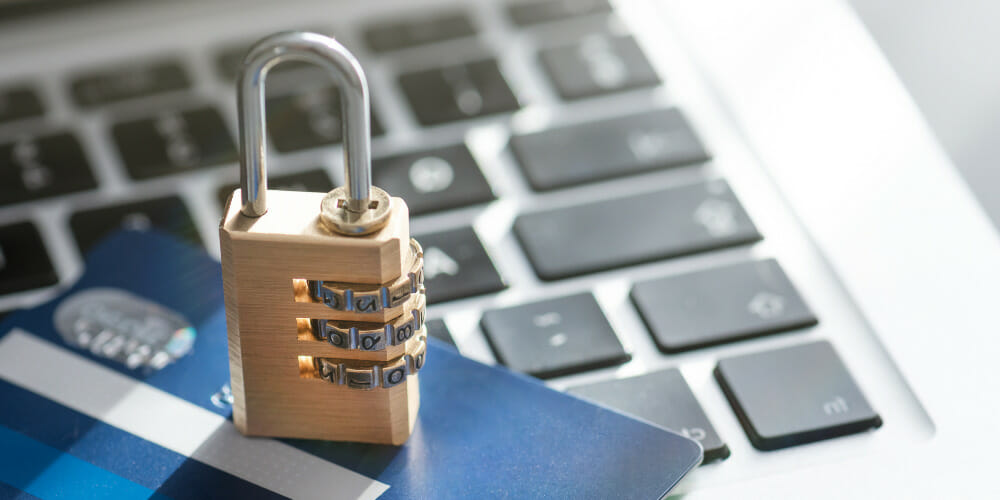
Check Unauthorized Charges
Another way to prevent credit card fraud is to regularly check your credit card statements for any unusual or unauthorized charges. If you see anything on your statement that you do not recognize, contact your credit card company immediately to report the charges.
Keep Card It In Safe Place
You should always keep your credit card in a safe place and never leave it unattended in public places. If you must use your credit card in a public place, be sure to keep it close to your body and out of sight of others. Protect your credit card from thieves and scammers. Never give access to your credit card to anyone, even family and friends.
Look Out For Warning Signs of Credit Card Fraud
Avoid using a credit card at publicly available card readers and less monitored ATMs. Be careful of voice phishing via texts, calls, or emails. Never open spam emails or suspicious emails.
If you suspect that you may have been the victim of credit card fraud, be sure to contact your credit card company immediately and file a report with the police. By taking these simple steps, you can help to prevent credit card fraud and protect yourself from becoming a victim
FAQs
What if Someone Knows My CVV Number?
Even if someone knows your CVV code, they can’t use it for transactions because they will also require to provide your card number. Although, still avoid providing your CVV code to anyone posing to call from your bank or card issuer company.
Can Someone Withdraw Money from My Account Without my PIN?
No one can withdraw cash from an ATM without providing a PIN code. Thus, even if someone gets a hold of your physical card, they can’t withdraw cash from an ATM without providing a PIN code. But they might use other tactics for transferring funds to another account.
Is it Safe to Email Credit Card Numbers?
No, sharing your credit card information over emails or texts is unsafe. Because hackers can easily access your email inbox and steal your credit card information, therefore avoid sharing sensitive information via texts, calls, or emails to prevent data breaches.
What Can I Do With a Credit Card Number?
You can use credit card numbers for online transactions, money transfers, and buying luxurious items and e-products like gaming credentials or business services. You can even sell it to someone else.
Conclusion
Scammers can’t usually do much with only a credit card number. However, with advancements in technology and fraudulent acts, they can come up with various ways to use your credit card number. They can sell it on the dark web or black market or even use it to buy designer products or e-products online.
It is necessary to be cautious all the time to prevent these fraudulent acts. However, if you suspect that you’ve been a victim of credit card fraud, report it immediately to law enforcement authorities to avoid any big damage.

